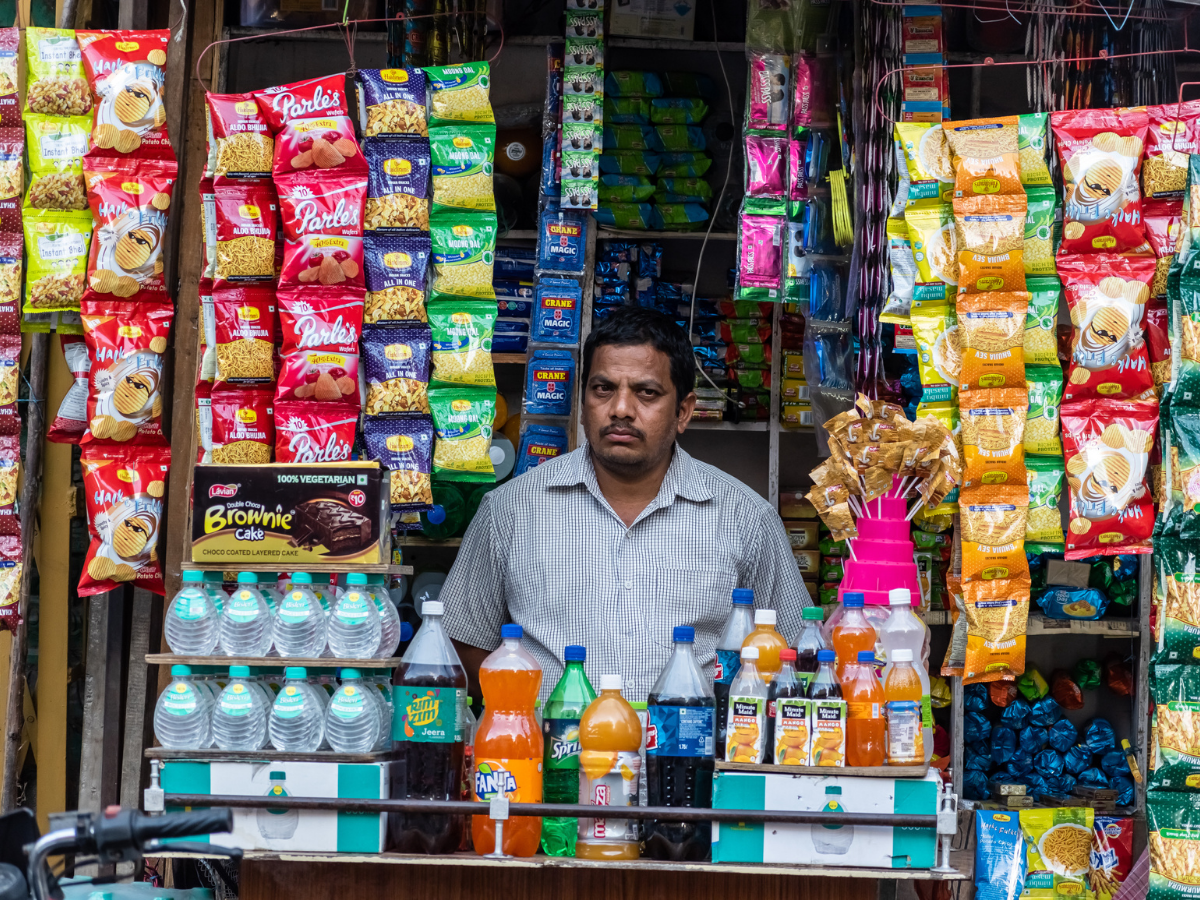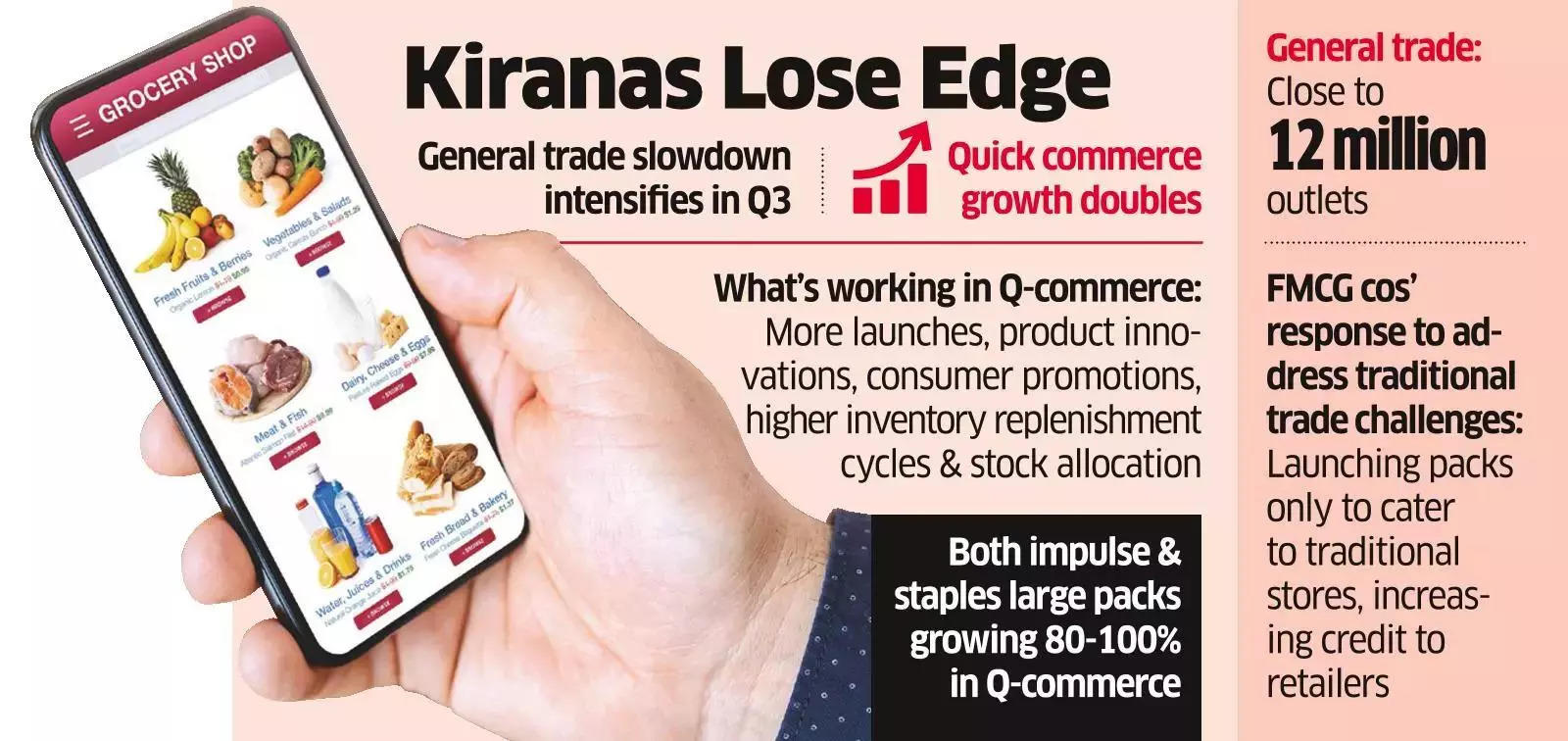[ad_1]

India’s neighbourhood grocery stores numbering around 12 million witnessed an intensified slowdown in sales in the last quarter of 2023, even as quick-commerce firms gained market share for not just impulse products but also large packs of staples, consumer goods companies and analysts said.
Packaged goods makers Marico, Dabur, Emami and Parle, as well as sector analysts, said general trade, or the kirana stores, faced slower growth and challenges in profitability and liquidity in the past quarter. Ecommerce, however, recorded strong growth, they added.
Marico, the maker of the Parachute hair oil and Saffola oats, said while general trade channels continued to be a drag, the revenue performance of ecommerce channels was healthy. “Marico is reducing inventory holding costs and improving trade schemes to address challenges in grocery stores,” the company said in a management commentary.

Quick-commerce platforms Swiggy Instamart, Zomato-owned Blinkit, Zepto and BBNow, which deliver to consumers within 10-20 minutes, are contributing between 30% and 50% of ecommerce sales of FMCG companies, executives said.
Ayush Gupta, head – domestic market, at consumer staples maker KRBL that sells India Gate rice, said: “We are surprised the way large packs of staples have taken off in quick commerce, which is growing 100%QoQ for us.” On the other hand, growth in kirana grocery stores is about 10%, though on a larger base, he added.
Adani Wilmar and LT Overseas said staples packs, even those of 5 kg or 10 kg, are showing robust growth in sales on quick-commerce platforms, which were earlier considered to be channels for impulse categories such as soft drinks and snacks.
The pick-up in quick commerce has led FMCG companies to launch a number of product innovations and offer more consumer promotions and festive or ‘big day’ discounts, such as on Independence Day, on the platforms.
“ITC is engaged in collaborative forecasting for demand management with leading quick-commerce platforms for better demand management,” said Sandeep Sule, divisional chief executive – trade marketing and distribution at the maker of Sunfeast biscuits and Fiama soaps. “In addition, there are regular engagements between ITC and quick-commerce teams to continuously review on-platform availability of products which enables linking of packs across their dark stores and help in increasing the availability of products,” he said.
A spokesperson for Maggi noodles and Kitkat chocolate maker Nestle said quick-commerce platforms are now contributing close to half of the company’s ecommerce business. “While ecommerce contributed to 6.6% of Nestle’s business for the nine-month period ended September 30, 2023, quick commerce has been driving growth within the segment with almost 50% of the overall ecommerce business being contributed by quick commerce,” the spokesperson said.
ICICI Securities wrote in a January report that continued demand stress in the mass segment and extended slowdown in the general trade channel impacted revenue of FMCG companies in the December quarter, which coincided with the peak festive Diwali quarter.
FMCG companies said they have increased the number of inventory replenishment cycles to avoid stock-outs and allocated more stock, while evaluating the data on a real-time basis with the platforms.
[ad_2]
Source link





